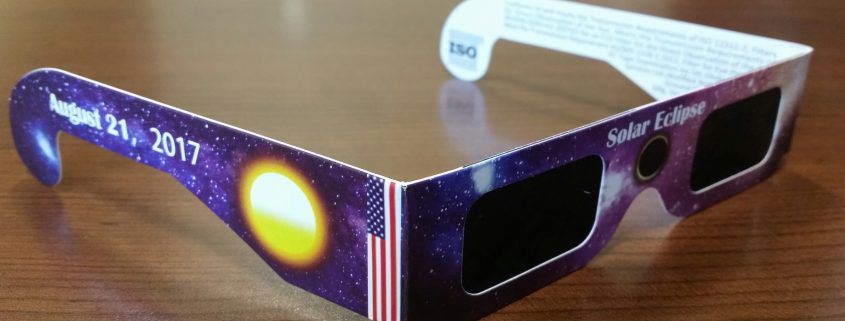Lanyards, viewing cards, personnel: odds and ends WKU has bought for the eclipse
August 17, 2017
The WKU Eclipse Committee has been planning for Monday’s total solar eclipse for over two years.
In that time, WKU has spent over $131,000 to prepare, including purchasing eclipse viewing cards and lanyards, and hiring two part-time staff members, according to expenditure documents.
Financial documents for the eclipse committee begin in fiscal year 2015-2016, according to documents provided by Ogden College Dean’s office. In that year, the committee spent only $62.70 on travel expenses for Richard Gelderman, professor in the department of physics and astronomy.
According to the travel expense voucher Gelderman submitted on June 16, 2016, he traveled to Carbondale, Illinois to participate in a planning meeting for this year’s eclipse. Carbondale, Illinois is “only a few miles north from the point of greatest duration” of the total solar eclipse, according to the Carbondale Eclipse website.
The most money was spent in fiscal year 2016-2017 on preparations for the eclipse. In that year, approximately $97,550 was spent, according to financial records.
The eclipse committee also made over $29,000 in revenue, in the same fiscal year, with the majority of those funds coming from the Confucius Institute, which purchased 100,000 solar eclipse glasses featuring their logo. The purchase of those glasses resulted in a $20,750 revenue for the eclipse committee, according to records from the Confucius Institutes Research Foundation Account.
The eclipse committee also took in over $7,000 in “web sales” as well as a $1,166 “transmittal” from Vision Source of Bowling Green.
Bob Skipper, media relations director for WKU, said it was too early to project what sales would be from eclipse related merchandise. Skipper also said that organizers of eclipse events were unable to respond to questions at this time.
Theo Wellington, eclipse planning coordinator at Hardin Planetarium, said in an email that “eclipse merchandise is in high demand.”
“We are only a minor seller, using proceeds to support outreach to schools,” Wellington said.
The majority of spending for fiscal year 2016-2017 was paid to Rainbow Symphony, Inc. for the purchase of solar viewing cards. In two separate transactions, over $61,000 was spent for 191,000 solar viewing cards, for distribution to WKU students, faculty and staff, as well as for public schools in the surrounding region.
Wellington said they have distributed over 100,000 pairs of eclipse viewing glasses “at no charge” to area public schools and on campus, and she predicted they would “not have enough to satisfy demand.”
“The goal is to get safe viewers out to the community,” Wellington said.
Over $30,000 was also paid to Ad-Venture Promotions, for the purchase of 201,000 customized lanyards to hold eclipse viewing cards.
Wellington and Celeste Holliman, planetarium presenter at Hardin Planetarium, are both listed as having part-time salaries paid for by the eclipse committee. Since fiscal year 2016, personnel costs paid by the eclipse committee total over $26,000.
Wellington News Editor Monica Kast can be reached at 270-745-6011 or [email protected].


























